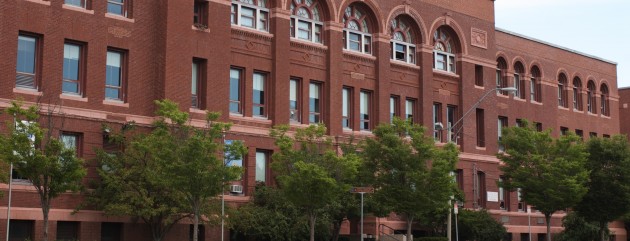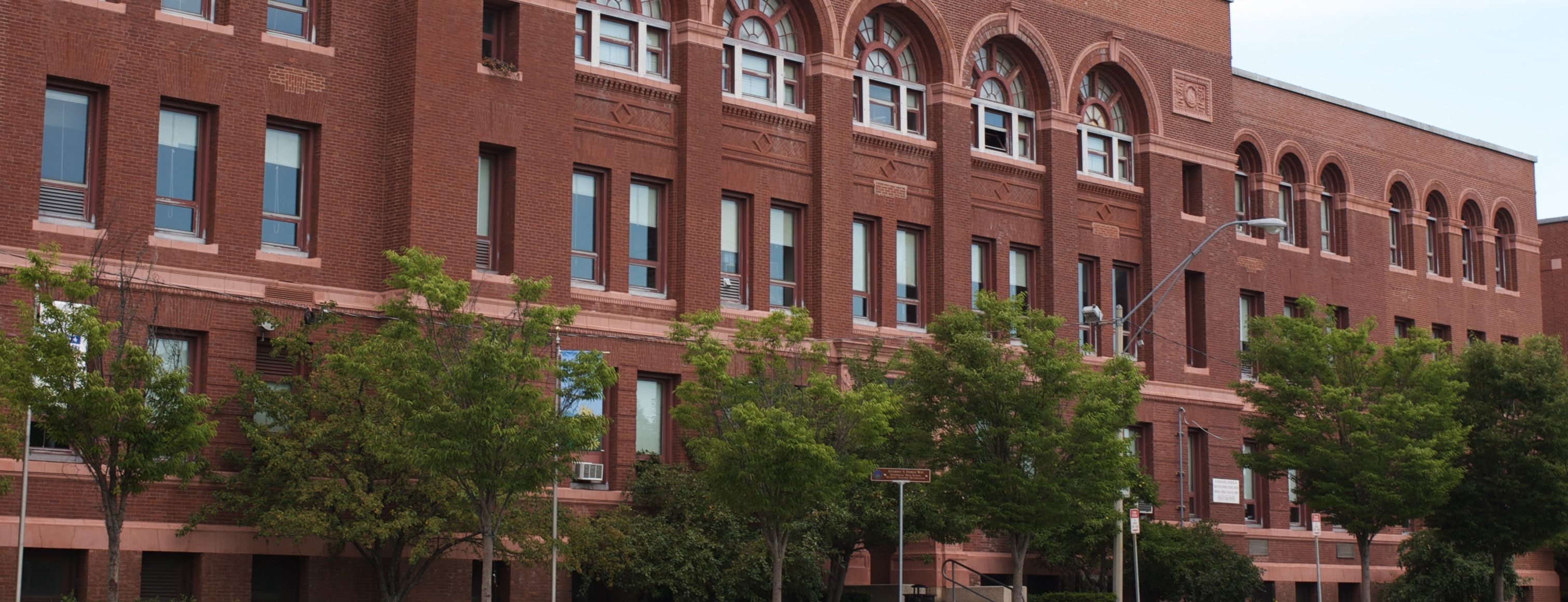The primary purpose of any education system is to develop the human capital of the next generation so that it joins the ranks of the workforce and improves lives; doctors heal people, artists create beauty, musicians entertain us, designers clothe us, engineers design bridges, construction workers then erect those bridges, and computer programmers make our lives more productive. Lately, I have been thinking about the education system a great deal, especially when it comes to public schools versus private schools.

The education system in the United States is working very well for some students, and utterly failing other families.
My Four Beliefs About Education and the Education System in the United States
I have four primary beliefs when it comes to education and the education system:
- Every child, not just the children of the rich, should have a chance at being taught by the best teachers.
- The best teachers should have an opportunity to be paid extremely well, just like corporate lawyers or doctors. This would put their salaries and bonuses in the range of $100,000 to $500,000 per year.
- Ineffective teachers should be fired regardless of tenure, experience, or education credentials. No one has a “right” to teach any more than you have a “right” to be an NBA star or get a record deal.
- The goal of education should be to instill practical knowledge and skills in a child that will enable him or her to be a productive, responsible, self-sufficient member of society.
There Are Several Challenges to the Existing Education System in the United States
The challenges currently encountered to such an end-results are:
- Not all teachers start with a level playing field. A teacher in a rich district has kids who are fed, clothed, read to, and socially adjusted, while a teacher in a crime-ridden district suffering from crippling poverty are teaching kids with much less “built-in” knowledge on the first day of school.
- Rich families have mechanisms and strategies, often non-intentional, that result in making it impossible for poor families to enter affluent districts.
- It is only necessary to have a teachers union because the present system forces individual educators, some brilliant and others terrible, to negotiate salaries and benefits together and be treated equally, even though they are not.
- Teachers are required to teach to the middle or bottom of the classroom, ignoring the most gifted students. This is an enormous waste of intellectual capacity that is vital to the future of the nation with the expanded level of global competition.
How I Would Design a School System or Education System
If I were using my own knowledge of mental models and human incentive systems to create an education plan, here is what I would do: Split each subject into 12 grade levels that were individually mastered, just like college, instead of an across-the-board grade levels determined by year of birth. For example, someone who is 10 years old might be in level 9 chemistry if they love the subject and are great at it, but in Level 3 literature if they have trouble with the written word. This would achieve several things:
- Teachers would be able to specialize in one subject and give their entire efforts to it. A teacher who loved teaching the basics of reading and writing to younger students could do it, while a teacher who enjoyed dealing with gifted mathematically-inclined students could spend his or her time doing that.
- Slower students wouldn’t feel left behind and would get the attention they needed.
- Gifted students could move up as rapidly as the system allows.
- The entire system would force individualized attention without any additional demands on teacher time.
- You wouldn’t get “social” promotions from one grade level to another; you only pass if you can do the work, in a specific topic.
How Do We Structure the System? That Is a Good Question
I want you to think about something for a moment …
- When you or your child gets sick, you hire to the best doctor you can afford.
- When you or your child has a cavity, you hire the best dentist you can afford.
- When you buy a car, you buy the best car you can afford consistent with your needs.
- When you buy a television, you buy the best television you can afford.
What makes you think choosing an educator is any different? Parents want the best teachers for their kids. It is human nature.
Instead, families who send their kids to public school register, then hope for the best. If education is so much more important than television, why would you allow your child to be educated by the luck of the draw? Education should not be a lottery ticket. Right now, the system is setup so that people like me (read: those with means) can buy the best education but everyone else is subject to hope and prayer. It shouldn’t be that way. It’s a fundamental moral wrong.
[mainbodyad]You wouldn’t tolerate, let alone accept, this situation in any other facet of your life. Would you take a car that was assigned to you randomly by a car dealer? How would you react if a furniture salesman decided which television model you could buy with your money and chose a black-and-white tube-television from 1957? You’d huff and puff, take your money, and walk out of the store.
How can we fix it? One option is to give each child a financial educational voucher that let his or her family “vote” on the teacher(s) they wanted so they got to decide how their dollars were allocated, with the subject matter to government standards, just like colleges and universities are accredited. That way, you couldn’t have schools teach bizarre nonsense (e.g., the Earth is only 6,000 years old), and the best schools will naturally rise to the top as parents vote with their dollars for individual teachers.
That is, families could “vote” in effect on the teachers and schools that were bests for their children by allocating their own tax dollars. Just like Reddit, the “front page of the Internet” crowdsources the best content that then goes viral, the same approach might work for education systems.
Under such a system, a teacher who is truly fantastic at their job could earn enormous sums of money. They would be negotiated and recruited just like lawyers, doctors, and software engineers. They would attract their own following as word got out about their skills. There are great teachers. Everyone knows who they are. Everyone tries to get their kid into those teacher’s classrooms because virtually all parents want their children to do better than they did. I can go back and tell you the “best” teachers in each of my grades K-12, even though I am now almost 30 years old. It’s evident, even to a child, some people are better at their jobs.
The ineffective teachers, on the other hand, would fail and fail miserably within a few years. Families in individual school districts, who know what is going on in their own community, would simply refuse to hire a specific teacher for their kid. In three or four years, they’d be earning minimum wage and get the clue. There are terrible teachers in each district. Everyone knows who they are, too. You try to avoid them and, if your kids are assigned to their classroom, you do everything you can to get out of it. These people should not have a job. It even persists at the university level, where everyone from faculty members down to freshman know who can’t run a classroom, yet they can’t push them out due to union contracts.
A Financial-Based Education System Effectively Transfers Money from Bad Teachers to Effective Teachers
Under a “vote-with-your-pocketbook” system, the pay of good teachers rises drastically, with most of the money coming out of the pockets of bad teachers, who are then forced out of the system. This makes teachers pure knowledge workers, not commodities.
[mainbodyad]After all, have you ever heard of lawyers needing a union? Of course not. They are each their own business and the most talented, skilled, and effective lawyers get paid the most money with a handful of exceptions. It is an infinitely fairer system than the one we have now where good teachers are forced to pick up the slack for the bad and, even more insultingly, paid the same amount as their ineffective colleagues.
There would be several major challenges that would need to be addressed. To me, one of the biggest quandaries is the absolute necessity of safeguards so that people didn’t vote for teachers who graded easily, resulting in academic hyper-inflation.
There Is Also the Opposite Approach: Require Everyone to Participate in the Public School System
Then again, there is another possibility: Do away with all private schools, entirely. Public schools fail because the “best” students and families, who have doctors, lawyers, accountants, engineers, and elected officials, often self-select out of the system. If these students were required to participate in the system, the parents would get involved and actively work to improve the quality of the local community schools. It’s human nature.
Otherwise, how do you fix it? In a knowledge economy, we cannot keep creating a dualistic society of low wage retail workers on one hand and high paid, high skilled labor on the other. We are wasting our human capital. That is bad for everyone.



